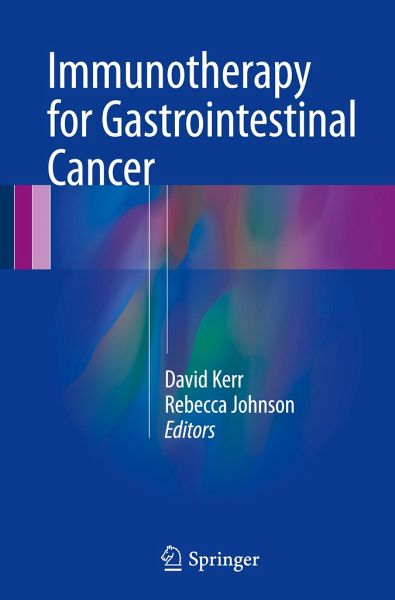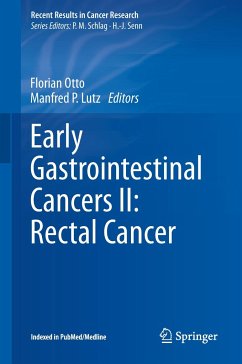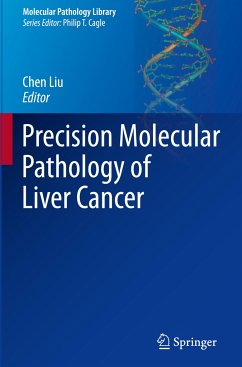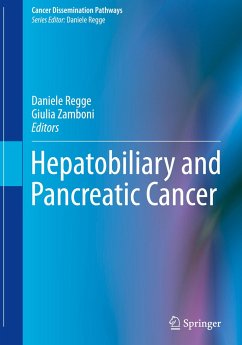
Immunotherapy for Gastrointestinal Cancer

PAYBACK Punkte
53 °P sammeln!
This book is about the manipulation of the immune system as a therapeutic approach to gastrointestinal cancer and its clinical applications, exploring therapeutic approaches which might be taken under the broad banner of immunotherapy.Starting by introducing concepts of modern immunology, the clinical applications of immunotherapy are then discussed. The reader will learn about the three broad classes of immune therapeutic agents: cell-based treatment; antibody therapy; cytokine application and the key effector cells and mechanisms which might cause tumour rejection. The reverse side of this e...
This book is about the manipulation of the immune system as a therapeutic approach to gastrointestinal cancer and its clinical applications, exploring therapeutic approaches which might be taken under the broad banner of immunotherapy.
Starting by introducing concepts of modern immunology, the clinical applications of immunotherapy are then discussed. The reader will learn about the three broad classes of immune therapeutic agents: cell-based treatment; antibody therapy; cytokine application and the key effector cells and mechanisms which might cause tumour rejection. The reverse side of this equation, the genetic and molecular mechanisms which the tumour can use to escape immune control and regulation, is also discussed. Through reviewing the most up-to-date evidence, this volume provides an overview of the important scientific lessons learned from past failure of immunotherapeutics in the clinic and highlights more positive recent data, coupled to practical guidelines for clinical usage.
Written by a team of worldwide experts, this is an indispensable guide for medical oncologists, surgical oncologists, radiation therapists, pharmacists, oncology nurse specialists.
Starting by introducing concepts of modern immunology, the clinical applications of immunotherapy are then discussed. The reader will learn about the three broad classes of immune therapeutic agents: cell-based treatment; antibody therapy; cytokine application and the key effector cells and mechanisms which might cause tumour rejection. The reverse side of this equation, the genetic and molecular mechanisms which the tumour can use to escape immune control and regulation, is also discussed. Through reviewing the most up-to-date evidence, this volume provides an overview of the important scientific lessons learned from past failure of immunotherapeutics in the clinic and highlights more positive recent data, coupled to practical guidelines for clinical usage.
Written by a team of worldwide experts, this is an indispensable guide for medical oncologists, surgical oncologists, radiation therapists, pharmacists, oncology nurse specialists.












